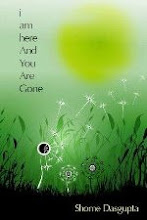Saturday, June 19, 2010
Lydia Millet, On Reading
"There's a chemistry that occurs between the human brain and the written word and the white spaces on the page — a chemistry quite unlike any other. Of course, chemistry is a metaphor in the terms of science, but there are other metaphors that work as well; reading is also an act of magic or mysticism, even an act of strange religion. The sublime manifests itself in words, the unspeakable comes out of words and goes beyond them.
We can’t separate our thinking from words, as we can separate it from so many other human productions. Words seem to exist in us both before and after thought, as well as during thought and being thought. They're both eternally outside our control and actively, if elusively, within it.
Because of the power that words have in our minds, the words of others — and especially the passionate and individual, idiosyncratic compendia of words that form themselves into books — are a kind of communion between minds, a communion that can't be reached in other ways. In books we have something unique. As long as we put ourselves into books, our passion and our intelligence and the parts of us that can’t be seen anywhere else at all, we have nothing to fear.
As long as we read, and read well, we need not fear obsolescence, we need not fear even death. Great books speak beyond death. They are the death-defiers. Books are the vessels that exist both inside and outside time."
{Lydia Millet's collection of short stories, Love In Infant Monkeys, was a Pulitzer Prize finalist. She is the author of several novels, including Everyone's Pretty, How The Dead Dream, and My Happy Life, which won the PEN-USA Award for Fiction. Visit her website here for more information.}
Subscribe to:
Post Comments (Atom)














A passionate account of what reading means. Thanks.
ReplyDelete